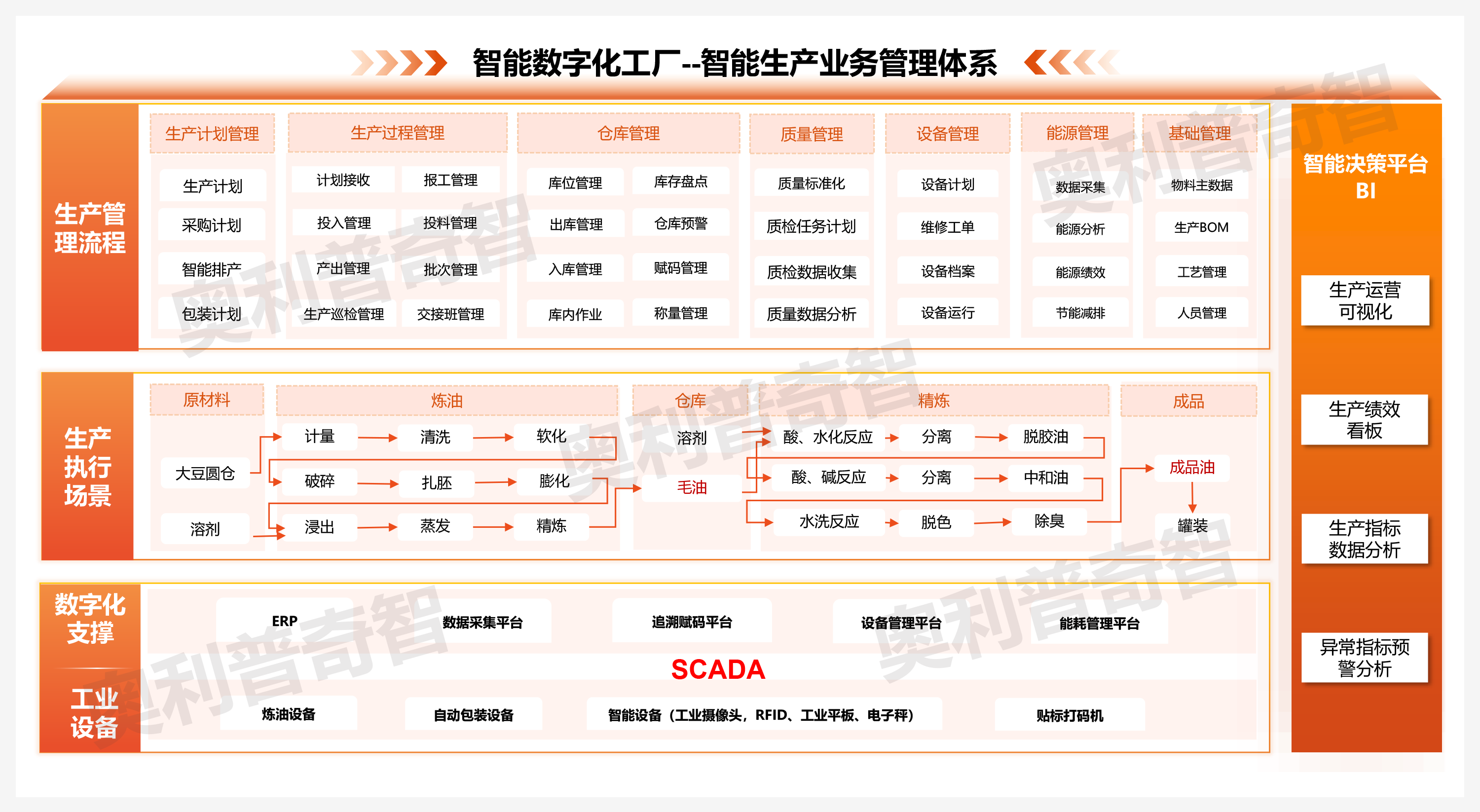-
Difficulty in managing raw material batches: For bulk raw materials, they are stored in large storage silos with a capacity of over 100 tons. It is difficult to store the raw materials from different suppliers in separate batches, and it is also challenging to trace the origin of the raw materials.
-
The production statistics are not accurate: The raw materials are conveyed by a conveyor belt and weighed manually, resulting in inaccurate measurement; The products are directly transported from the production line to the finished product storage area through an oil pipeline, and the output is calculated based on the liquid level.
-
Inadequate timely issuance of instructions: The process is complex, and instructions are conveyed between departments and across processes through paper and verbal means, resulting in deviations and delays in the issuance/distribution of information, which affects work efficiency.
-
Difficulty in energy consumption statistics: The production process requires a large amount of water, electricity, steam, solvents, etc. Manual measurement and statistics are relied upon, making it impossible to accurately identify energy consumption at the production line level, process level, and equipment level. The cost accounting is also very cumbersome.
-
Inconsistent quality management: Process inspections require manual form filling, which is not standardized; various inspection data are scattered across different links and cannot be uniformly managed; quality data cannot be statistically analyzed or traced.
-
Lack of multi-dimensional analysis makes key decisions difficult: Insufficient equipment data collection, manual statistics are slow and less effective, resulting in data asymmetry between the office and the site; Barriers to sharing various data prevent the integration analysis of production data and management indicators with output and quality.
Grain and Oil

Industry pain points
Solution
Advantages and Effects of the Plan

Typical Case


